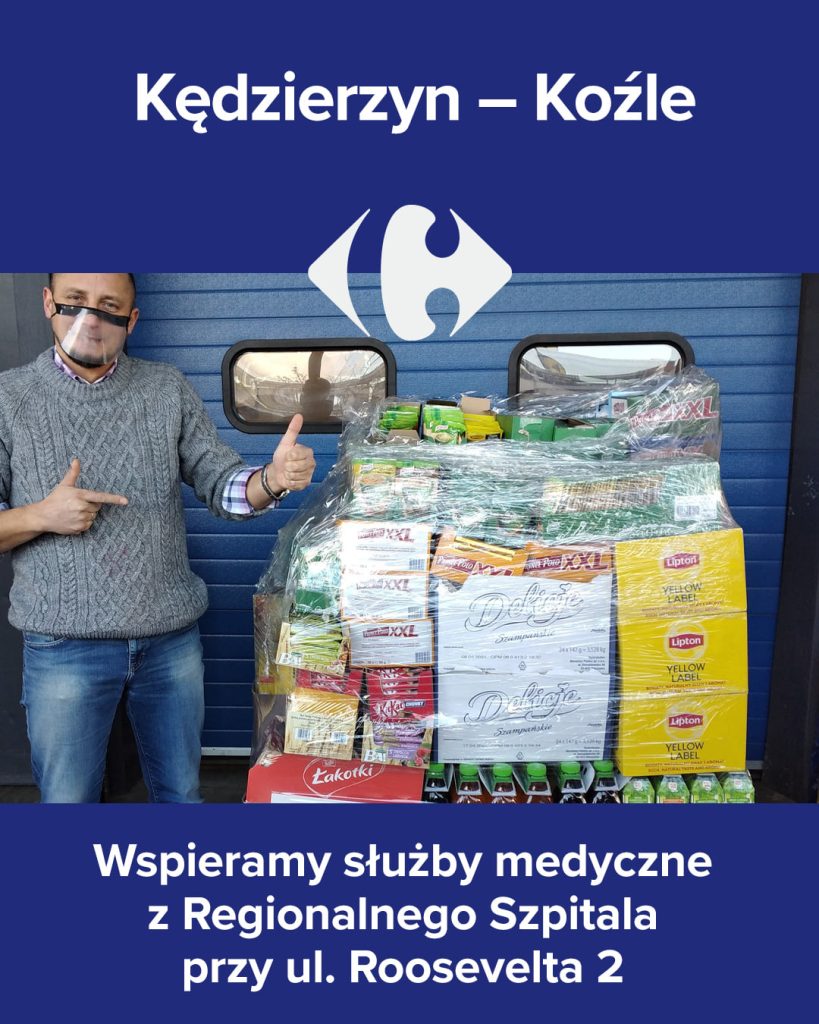- Home
- E-COMMERCE
- Exploring the Success Story of Carrefour: A Global Retail Giant

Exploring the Success Story of Carrefour: A Global Retail Giant
Introduction Carrefour
Carrefour, a name synonymous with shopping carts overflowing with fresh produce, bustling aisles, and rows of international brands, beckons us to delve into its fascinating story. It’s a tale of humble beginnings in France, pioneering spirit, and ambitious global expansion, all woven together by a commitment to serving communities and exceeding customer expectations.
Imagine stepping into a world where local vendors and global giants share the same roof, where baguettes mingle with exotic spices, and where everyday essentials dance alongside technological marvels. This is the magic of Carrefour, the Carrefour brand that has conquered continents and captured hearts.
But Carrefour is more than just a supermarket chain. It’s a vibrant ecosystem where farmers find a platform for their produce, communities access affordable and fresh food, and families create memories over shared meals. It’s a champion of sustainability, embracing eco-friendly practices and reducing its environmental footprint.
And let’s not forget the innovation! Carrefour has always been at the forefront of retail trends, experimenting with formats, embracing technology, and adapting to the ever-evolving demands of its customers. From hypermarkets to convenience stores, from online platforms to omnichannel experiences, Carrefour nimbly navigates the retail landscape, always keeping its finger on the pulse of consumer needs.
Founding and Early Years
Before towering hypermarkets and click-and-collect services, Carrefour was a seedling planted in the fertile ground of 1950s France. Let’s rewind and witness the sparks that ignited this retail giant:
The Spark: In 1959, two food wholesalers, Marcel Fournier and Denis Defforey, met a shopkeeper, Jacques Defforey, and an idea bloomed. Inspired by American supermarkets, they envisioned a self-service haven offering an abundance of groceries under one roof.
Planting the Seed: Annecy, a picturesque French town, became the cradle of Carrefour. The first shop, a modest 500 square meters, opened in 1960, offering everyday essentials. Its name, meaning “crossroads” in French, hinted at the convergence of convenience and choice it promised.
From Seedling to Sapling: Success bloomed quickly. Low prices, diverse products, and the novelty of self-service attracted customers like bees to pollen. Carrefour multiplied, with new stores sprouting across France in the early 1960s.
The Hypermarket Revolution: In 1963, Carrefour took a daring leap. France witnessed the birth of the first hypermarket in Sainte-Geneviève-des-Bois, a mammoth 2,500 square meter space teeming with groceries, appliances, clothing, and more. It was a retail revolution, shattering traditional models and setting the stage for Carrefour’s future.
Early Challenges and Triumphs: The fledgling giant faced its share of hurdles. Logistics, supplier negotiations, and changing consumer preferences demanded constant adaptation. But Carrefour navigated these challenges with agility, experimenting with new formats like cash-and-carry stores and honing its focus on value and convenience.
By the end of the 1960s, Carrefour had firmly established itself as a pioneer in the French retail landscape. Its innovative spirit, commitment to affordability, and ability to adapt to changing consumer habits laid the foundation for its subsequent global expansion and transformation into the retail powerhouse we know today.
Global Expansion
Fueled by the early success in France, Carrefour’s ambition blossomed, its roots seeking fertile ground beyond national borders. The 1970s and 80s witnessed the supermarket chain embark on a bold journey of global expansion, transforming itself from a French champion to a truly international player.
Spreading the Wings: The first stop on Carrefour’s global adventure was Belgium in 1973. Then came Spain, Brazil, Argentina, and countless others, with Carrefour’s footprint steadily creeping across Europe, Latin America, and Asia. By the turn of the 21st century, it had woven a vast network of stores across four continents, becoming one of the world’s largest retailers.
Adapting to Diverse Soils: Each conquered continent presented its unique challenges and opportunities. Carrefour learned to adapt its offerings and strategies to local tastes and customs. In Brazil, it partnered with local businesses to source fresh produce and cater to dietary preferences. In China, it embraced e-commerce platforms like Alibaba to tap into the burgeoning online market.
Navigating Economic Tides: Carrefour’s global journey wasn’t without its storms. Currency fluctuations, economic crises, and fierce competition in diverse markets demanded constant vigilance and strategic shifts. The financial crisis of 2008 forced a period of retrenchment and restructuring, but Carrefour emerged stronger, focusing on core markets and optimizing its operations.
Mergers and Acquisitions: To strengthen its foothold in certain regions, Carrefour opted for strategic partnerships and acquisitions. This included merging with Promodes in 1999, creating a European retail juggernaut. In China, it joined forces with local retailer Yonghui Supermarkets, gaining deeper access to the country’s vast consumer base.
The Changing Landscape: Today, Carrefour continues to navigate the ever-evolving retail landscape. The rise of online shopping giants like Amazon has led the company to invest heavily in its e-commerce platforms and omnichannel strategies. It is also focusing on sustainability initiatives and local sourcing, adapting to changing consumer values and environmental concerns.
Carrefour’s global expansion is a testament to its agility, resilience, and unwavering ambition. From the humble crossroads in France to its sprawling reach across continents, Carrefour’s journey is a remarkable tale of crossing borders, conquering challenges, and adapting to thrive in a world of shifting landscapes. As it continues to evolve and innovate, one thing remains certain: Carrefour’s global footprint will continue to shape the way we shop and experience the world of retail for years to come.
Business Model
Carrefour, the French retail giant, has carved its niche in the global market with a unique business model that balances tradition and innovation. Let’s delve into the key pillars of this fascinating system:
1. Multi-format Approach: Carrefour operates a diverse range of stores, from hypermarkets and supermarkets to convenience stores and cash-and-carry outlets. This caters to different customer segments and shopping needs, maximizing market reach and ensuring convenience.
2. Private Label Powerhouse: Carrefour boasts a strong portfolio of private-label products, offering quality alternatives at competitive prices. This increases profit margins, strengthens brand loyalty, and allows for greater control over product quality and sourcing.
3. Supply Chain Savvy: Carrefour boasts a robust and efficient supply chain network, ensuring consistent product availability and cost-effectiveness. This involves direct partnerships with farmers and producers, minimizing reliance on intermediaries and reducing costs.
4. Omnichannel Experience: Recognizing the digital shift, Carrefour has invested heavily in online platforms and omnichannel services. This includes click-and-collect options, online grocery delivery, and mobile apps, blurring the lines between physical and digital shopping experiences.
5. Focus on Freshness and Sustainability: Carrefour prioritizes fresh produce and local sourcing, catering to health-conscious consumers and reducing its environmental footprint. Initiatives like organic farming partnerships and eco-friendly packaging reflect this commitment.
6. Community Engagement: Carrefour actively engages with local communities, supporting farmers, sponsoring events, and implementing social responsibility programs. This fosters goodwill, builds brand loyalty, and reinforces its positive image.
Challenges and Adaptations:
Carrefour faces stiff competition from online giants and discount retailers. To stay ahead, the company is focusing on digital transformation, personalized customer experiences, and cost optimization. Additionally, adapting to local preferences and regulations is crucial in diverse markets.
Carrefour’s omnichannel strategy, focus on fresh food, and commitment to sustainability position it well for future growth. By leveraging its extensive network, strong brand recognition, and agile approach, Carrefour can continue to thrive in the ever-evolving retail landscape.
Innovation and Technology
Carrefour, the French retail giant, isn’t content with just stocking shelves and scanning barcodes. It’s at the forefront of innovation, weaving technology and creative solutions into its operations to enhance the customer experience and stay ahead of the curve. Let’s explore some of the ways Carrefour is pushing the boundaries of retail:
1. Smart PoS: Say goodbye to long checkout lines! Carrefour is piloting Smart PoS, an intelligent checkout system that automatically applies promotions, displays personalized offers, and accepts various payment methods, streamlining the checkout process and making it a breeze.
2. U. Care App: Need help locating that elusive avocado? Download the U. Care app! This handy tool shows employees the precise location of items on shelves, optimizing picking efficiency and ensuring you get your groceries faster.
3. Blockchain Transparency: Want to know the journey of your mango from orchard to aisle? Carrefour leverages blockchain technology to offer customers complete transparency. Scan a QR code and witness the entire life cycle of your produce, building trust and promoting sustainable practices.
4. AI-powered Shopping Companions: Feeling overwhelmed by choices? Hopla, Carrefour’s AI-powered chatbot, is here to help! This virtual assistant understands your preferences and recommends products, creating a personalized shopping experience and removing the guesswork.
5. Robotics and Automation: Carrefour embraces robots for tasks like inventory management and warehouse operations. These automated assistants improve efficiency, reduce human error, and free up employees for more customer-centric tasks.
6. Virtual Reality in-store experiences: Imagine touring a farm before buying its produce! Carrefour is experimenting with VR technology to let customers virtually experience where their food comes from, promoting transparency and building emotional connections with brands.
7. Sustainability Initiatives: Carrefour commits to reducing its environmental footprint through innovative solutions. Renewable energy sources in stores, electric delivery vehicles, and packaging reduction initiatives are just a few examples of their commitment to a greener future.
8. Data-driven Insights: Carrefour leverages customer data to personalize offers, predict demand, and optimize store layouts. This data-driven approach ensures a relevant and convenient shopping experience for each customer.
Integrating technology seamlessly, addressing data privacy concerns, and ensuring ethical use of AI are some of the challenges Carrefour faces. However, their commitment to innovation, coupled with strategic partnerships and a focus on customer needs, positions them well for the future.
Carrefour is no ordinary supermarket. It’s a laboratory of innovation, where groundbreaking technology meets everyday groceries. By embracing digital solutions, Carrefour is not just shaping the future of retail, but also creating a more personalized, sustainable, and engaging shopping experience for customers like you and me.
Sustainability Initiatives
Carrefour, the French retail giant, isn’t just about filling your pantry – it’s committed to filling the world with greener practices. From farm to fork, Carrefour implements sustainability initiatives across its operations, weaving environmental responsibility into the very fabric of its business model. Let’s explore some of the ways Carrefour is nurturing a sustainable future:
1. Championing Local and Organic: Freshness and sustainability go hand-in-hand at Carrefour. The company prioritizes local sourcing, reducing transportation emissions and supporting nearby farmers. Additionally, promoting organic products encourages eco-friendly farming practices and offers healthier choices for customers.
2. Reducing Food Waste: Wasted food isn’t just bad for the environment, it’s also a missed opportunity. Carrefour tackles this challenge through initiatives like selling discounted “ugly” produce, partnering with food banks, and optimizing stock management to reduce unnecessary waste.
3. Packaging with a Conscience: Bid farewell to mountains of plastic! Carrefour is committed to sustainable packaging solutions. They’re actively reducing packaging materials, developing compostable and recyclable options, and incorporating recycled content.
4. Embracing Renewable Energy: Sun, wind, and good vibes – that’s the Carrefour energy motto. The company is increasing its reliance on renewable energy sources like solar panels in stores, reducing their carbon footprint and paving the way for a cleaner future.
5. Logistics with Less Carbon: Delivering groceries doesn’t have to burn rubber. Carrefour optimizes its logistics network, reduces empty truck journeys, and invests in electric vehicles for last-mile deliveries, minimizing transportation emissions.
6. Transparency and Traceability: Want to know how green your groceries are? Carrefour is all about transparency. They implement blockchain technology to track the journey of products from farm to shelf, empowering customers to choose sustainably and hold producers accountable.
7. Engaging Communities: Sustainability isn’t just a corporate buzzword at Carrefour. They actively engage with local communities, educating consumers about food waste reduction, promoting composting initiatives, and supporting environmental projects.
The road to sustainability is paved with challenges. Fluctuations in energy costs, consumer behavior change, and ensuring affordable organic options are just some hurdles Carrefour faces. However, their unwavering commitment, strategic partnerships, and innovative solutions position them well for a greener future.
Challenges and Adversities
Carrefour, the retail giant at the crossroads of global commerce, has undeniably carved a remarkable path to success. However, its journey hasn’t been without its fair share of bumps and detours. Let’s delve into the key challenges and adversities Carrefour has faced and how it has navigated these crossroads:
1. Shifting Retail Landscape: The rise of online giants like Amazon and discount retailers like Aldi has disrupted the traditional supermarket model, challenging Carrefour’s market share and profit margins. Adapting to e-commerce, personalized experiences, and cost-optimization is crucial for its future.
2. Economic Crises: From the 2008 financial crisis to regional economic fluctuations, Carrefour has navigated turbulent economic waters. Optimizing operations, restructuring businesses, and focusing on essential goods have been instrumental in weathering these storms.
3. Cultural and Regulatory Hurdles: Expanding into diverse markets presents cultural and regulatory hurdles. Understanding local preferences, adapting product offerings, and navigating complex regulations are constant challenges requiring cultural sensitivity and strategic partnerships.
4. Supply Chain Disruptions: From natural disasters to global pandemics, Carrefour’s supply chains have faced various disruptions. Building resilience through diversification, local sourcing partnerships, and innovative logistics solutions are crucial to mitigating these risks.
5. Consumer Trends and Sustainability: Increasing health consciousness, ethical sourcing demands, and environmental concerns are influencing consumer choices. Carrefour has responded by investing in organic and local products, embracing sustainable packaging, and promoting transparency in its operations.
Despite these challenges, Carrefour has demonstrated remarkable resilience and adaptability. Its ongoing focus on innovation, strategic partnerships, and a dedication to serving local communities have been key to its continued success. Some key examples include
Competitive Landscape
Carrefour, the French retail giant, has carved its niche in the global market, but its journey isn’t a solo sail. It navigates a dynamic and competitive landscape, where tides of change and fierce rivals constantly challenge its position. Let’s dive into the key players and currents shaping Carrefour’s competitive environment:
Traditional Supermarket Giants:
- Walmart: The undisputed global leader, Walmart’s vast scale and cost-efficiency pose a significant threat to Carrefour, particularly in regions like the US and Latin America.
- Tesco: The UK powerhouse, Tesco, competes fiercely with Carrefour in Europe, offering similar product ranges and competitive pricing.
- Kroger: Dominant in the US, Kroger’s focus on private labels and customer loyalty programs challenges Carrefour’s market share in its North American ventures.
Discount Retailers:
- Aldi and Lidl: These discount giants offer basic groceries at rock-bottom prices, attracting budget-conscious shoppers and putting pressure on Carrefour’s profit margins.
- Dollar General and Family Dollar: In the US, these discount chains target similar demographics as Carrefour, offering a cost-effective alternative for everyday essentials.
Online Giants:
- Amazon: The undisputed e-commerce king, Amazon, poses a significant challenge to Carrefour’s brick-and-mortar dominance. Its rapid delivery and vast product selection entice customers away from physical stores.
- Alibaba and JD.com: These Chinese e-commerce giants dominate the online market in China, where Carrefour has a significant presence. Adapting to their strategies and integrating e-commerce into its business model are crucial for Carrefour’s success in the region.
Other Players:
- Specialty retailers: Organic food stores, ethnic supermarkets, and convenience stores cater to specific niches, potentially impacting Carrefour’s market share in certain segments.
- Direct-to-consumer brands: Brands selling directly online or through independent stores can bypass traditional retailers like Carrefour, impacting its product offerings and revenue.
Carrefour’s Strategic Responses:
- Focus on omnichannel and e-commerce: Carrefour is investing heavily in online platforms and click-and-collect services to compete with online giants.
- Private label and local sourcing: Strong private label offerings and local sourcing strategies provide competitive prices and cater to local preferences.
- Sustainability and ethical sourcing: Embracing sustainability practices and ethical sourcing resonates with environmentally conscious consumers and differentiates Carrefour from its competitors.
- Innovation and customer experience: Carrefour is constantly innovating with technology and personalized customer experiences to stay ahead of the curve.
The retail landscape is in constant flux, and Carrefour faces a dynamic set of competitors. However, its commitment to innovation, its focus on omnichannel strategies, and its dedication to sustainability position it well for future success. By adapting to changing consumer preferences and leveraging its strengths, Carrefour can continue to navigate the turbulent waters of the retail sea and remain a leading player in the global market.
Customer Experience
Carrefour, the retail giant at the crossroads of global commerce, understands that success hinges not just on shelves brimming with products, but on creating a seamless and satisfying customer experience. Let’s explore the diverse tapestry Carrefour weaves to attract, engage, and retain its customers:
1. Convenience is King: From hypermarkets to convenience stores and online platforms, Carrefour offers a spectrum of shopping options to cater to diverse needs and preferences. Click-and-collect services, mobile apps for easy ordering, and convenient delivery options all add to the customer’s comfort and efficiency.
2. Personalized Choices: Carrefour goes beyond aisles filled with generic products. It leverages data analytics and AI to personalize offers, recommend products based on purchase history, and tailor promotions to individual preferences. This creates a sense of value and relevance for each customer.
3. Local Flavors, Global Scope: Carrefour caters to local tastes and culinary traditions. Whether it’s stocking fresh baguettes in France or exotic spices in China, the company adapts its offerings to resonate with local preferences. This builds trust and community engagement.
4. Sustainability with a Conscience: Increasingly conscious consumers appreciate Carrefour’s commitment to sustainability. Organic produce, eco-friendly packaging, and transparent sourcing practices attract customers who align with these values.
5. Community Engagement: Carrefour goes beyond transactions. It sponsors local events, supports farmers, and implements social responsibility initiatives. This fosters goodwill, builds brand loyalty, and creates a sense of belonging for customers.
6. Technology-fueled Experience: Carrefour embraces technology to enhance the shopping experience. Smart PoS systems, AI-powered chatbots, and virtual reality tours of farms offer convenience, information, and even a touch of fun.
7. Loyalty Rewards: From loyalty programs with points and discounts to personalized offers and exclusive services, Carrefour rewards its loyal customers. This incentivizes repeat visits and strengthens brand affinity.
Meeting the diverse needs and expectations of customers in a hyper-connected world isn’t without its challenges. Maintaining data privacy, ensuring seamless omnichannel experiences, and personalizing services without feeling intrusive are some hurdles Carrefour faces.
However, their relentless focus on customer-centricity, investment in technology, and commitment to community engagement position them well for the future. By continuously innovating and improving the overall shopping experience, Carrefour can solidify its position as the crossroads where convenience meets choice, and where loyalty is nurtured through personalized offerings and a commitment to shared values.
Corporate Social Responsibility
Carrefour, the ubiquitous retail giant, stands not only at the crossroads of global commerce but also at the intersection of business and social responsibility. Embracing a multi-faceted approach, it strives to be a force for good while navigating the complex terrain of corporate social responsibility (CSR). Let’s delve into the key pillars of Carrefour’s CSR endeavors:
1. Food Transition and Sustainability: Recognizing the critical need for a sustainable food system, Carrefour champions the food transition. This involves promoting organic and local produce, reducing food waste through partnerships and innovative solutions, and embracing responsible sourcing practices.
2. Community Engagement and Empowerment: Carrefour actively engages with the communities it operates in. It supports local farmers and producers, sponsors educational initiatives, and implements programs to combat poverty and hunger. This fosters goodwill, builds trust, and contributes to social development.
3. Environmental Commitment: Carrefour takes concrete steps to minimize its environmental footprint. From investing in renewable energy sources and optimizing logistics to reducing packaging waste and promoting eco-friendly products, the company strives for a cleaner planet.
4. Employee Well-being and Diversity: Carrefour prioritizes the well-being of its employees by offering fair wages, training opportunities, and promoting diversity and inclusion in the workplace. This fosters a positive and productive work environment and contributes to employee satisfaction.
5. Ethical Sourcing and Transparency: Carrefour upholds responsible sourcing practices, ensuring fair treatment of workers and adherence to ethical standards throughout its supply chain. Transparency is key, with initiatives like blockchain technology enhancing product traceability and empowering consumers to make informed choices.
Balancing profit and purpose presents ongoing challenges. Integrating sustainability into operations, addressing ethical sourcing concerns in complex supply chains, and engaging effectively with diverse communities all require constant effort and strategic collaboration.
However, Carrefour’s commitment to CSR is evident in its ambitious goals and concrete actions. Investing in renewable energy, promoting local sourcing partnerships, and developing innovative food wa
Financial Performance
Carrefour, the French retail giant, is a complex tapestry of success and challenges, as reflected in its financial performance. Let’s dive into the key elements shaping its financial landscape:
Positives:
- Solid Revenue Growth: Despite the turbulent landscape of global retail, Carrefour has shown consistent revenue growth in recent years. In 2023, the company reported sales of €40.7 billion, a 6.6% increase compared to 2022. This suggests strong market presence and resilient demand for its offerings.
- Focus on Profitability: While top-line growth is crucial, Carrefour also prioritizes profitability. In 2023, it achieved an operating margin of 2.2%, demonstrating improved efficiency and cost control measures.
- Evolving Business Model: Recognizing the shift in consumer preferences, Carrefour is actively investing in e-commerce platforms and omnichannel strategies. This adaptability is key to future success in the digital age.
- Private Label Powerhouse: Carrefour boasts a strong portfolio of private-label products, offering quality alternatives at competitive prices. This increases profit margins and strengthens brand loyalty.
- Global Footprint: Carrefour’s presence in diverse markets provides diversification and potential for further growth, particularly in developing economies.
Challenges:
- Competitive Landscape: The retail sector is fiercely competitive, with traditional rivals and online giants like Amazon posing constant threats. Maintaining market share and attracting customers requires ongoing innovation and strategic differentiation.
- Economic Volatility: Global economic fluctuations and inflation can impact consumer spending patterns and put pressure on profit margins. Adapting pricing strategies and optimizing operations are crucial to navigating these uncertainties.
- Debt Burden: Carrefour carries a significant debt load, which impacts its financial flexibility and limits investment opportunities. Reducing debt and improving leverage ratios are priorities for future stability.
- Geopolitical Tensions: Events like the ongoing war in Ukraine can disrupt supply chains, raise commodity prices, and create economic uncertainty, impacting Carrefour’s operations in certain regions.
Carrefour’s financial performance is a mixed bag, showcasing both promising growth and persistent challenges. Its adaptability, focus on profitability, and strategic investments position it well for future success. However, addressing its debt burden, navigating the competitive landscape, and mitigating external risks remain crucial for long-term financial stability.
Future Outlook
Carrefour, the retail giant at the crossroads of global commerce, stands on the precipice of a captivating future. Its path holds immense potential, woven with a tapestry of opportunities and challenges that demand agility, innovation, and unwavering commitment.
Growth and Adaptation: Navigating the ever-evolving retail landscape, Carrefour eyes continued growth while embracing change. Its focus on omnichannel strategies, personalized experiences, and sustainable practices positions it to thrive in the digital age and resonate with conscious consumers.
Challenges to Conquer: The competitive landscape remains fierce, with traditional rivals and online giants vying for market share. Economic volatility and geopolitical tensions present further hurdles. Yet, Carrefour’s resilience and adaptability provide the tools to navigate these uncertainties and emerge stronger.
Community and Sustainability: Recognizing its intertwined fate with the communities it serves, Carrefour fosters inclusivity and empowers local farmers. Its commitment to ethical sourcing and environmental responsibility contributes to a greener future, building trust and solidifying its social impact.
Innovation at the Core: Carrefour embraces technology as a compass, weaving AI, robotics, and data analytics into its operations. From smart checkouts to virtual farm tours, these innovations enhance customer experience and propel the company towards a futuristic retail landscape.
Humanity at the Crossroads: In the end, Carrefour’s future hinges on its ability to connect with its customers on a human level. Building trust, fostering loyalty, and offering a sense of belonging will be key to securing its position as a beloved destination, not just a retail giant.
Carrefour’s story is far from written. As it stands at the crossroads of possibilities, embracing the challenges and seizing the opportunities, it promises to continue shaping the future of retail, one sustainable, personalized, and community-centric experience at a time.
The future is not about predictions, but about the choices we make today. By embracing innovation, prioritizing social responsibility, and connecting with its customers, Carrefour can chart a course towards a thriving future, ensuring its place as a beacon of positive change at the crossroads of global commerce.
Conclusion Carrefour
Carrefour, the French retail giant, is more than just a supermarket chain. It’s a complex tapestry woven from threads of global expansion, innovative solutions, and a commitment to sustainability and social responsibility. As it stands at the crossroads of commerce, its future holds immense potential, brimming with opportunities and challenges alike.
Carrefour’s journey is a testament to its resilience and adaptability. From humble beginnings to a global presence, it has navigated economic storms, cultural hurdles, and fierce competition. Its focus on omnichannel strategies, personalized experiences, and local sourcing positions it well for future success in a world where convenience and connection are paramount.
However, the path ahead is not without its thorns. The competitive landscape remains fierce, and external factors like economic volatility and geopolitical tensions pose potential threats. Yet, Carrefour’s commitment to innovation, its dedication to ethical practices, and its focus on building trust within communities equip it with the tools to conquer these challenges.
What truly sets Carrefour apart is its unwavering commitment to social responsibility. From promoting sustainability to engaging with local communities, the company recognizes its role in shaping a better future. This dedication to positive impact resonates with conscious consumers and builds lasting loyalty.
Looking ahead, Carrefour’s future is a canvas waiting to be painted. Its brushstrokes will be fueled by innovation, guided by a focus on human connection, and colored by a commitment to a greener, more equitable world. As it navigates the crossroads of possibilities, Carrefour promises to continue shaping the future of retail, one sustainable, personalized, and community-centric experience at a time.
So, the next time you encounter a Carrefour logo, remember, it represents more than just a place to shop. It embodies a spirit of resilience, innovation, and social responsibility. It’s a story of challenges overcome, opportunities embraced, and a future woven at the crossroads of commerce and humanity.
Carrefour’s future is not set in stone; it’s a tapestry waiting to be embroidered with the threads of our collective choices. By embracing innovation, prioritizing sustainability, and fostering community, we can all contribute to a brighter future for the retail giant and the world it inhabits.












